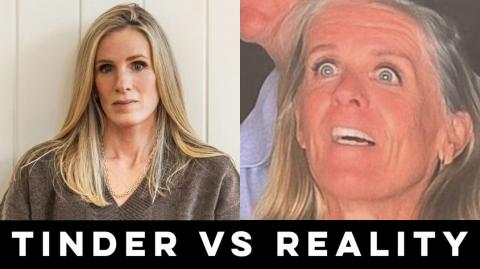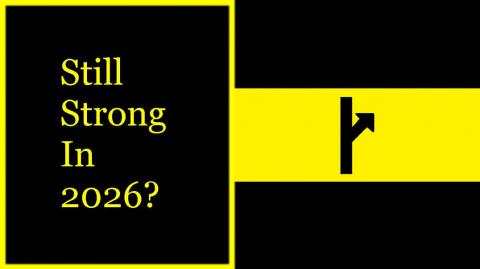Why Philosophy Is Important - MGTOW
In this video I reply to a question I received a donation to answer. The question: Why is philosophy important for men?
Patreon
https://www.patreon.com/ground....work_for_the_metaphy
Paypal
https://www.paypal.com/cgi-bin..../webscr?cmd=_s-xclic
Script
http://www.gftmom.com/portfoli....o-item/why-is-philos
Hey Everybody, Marcus here,
I received a donation with a topic request. Though I do not usually do such videos, it felt a little distasteful to not honor the request considering money was sent to me in good faith. The question I was tasked to answer is as follows: “Marcus, why do you believe philosophy is important for men?” This seems like a simple enough question but when I got to thinking about it, I discovered that the answer I want to give is a lot more involved than the question suggests.
In one sense, the question seems very silly to me. In another sense, the question is incredibly serious. To even ask the question: “Marcus, why do you believe philosophy is important to men?” pre-supposes a number of things. The first thing is that I, Marcus, believe philosophy is important to men. Indeed, I can confirm that I do believe philosophy is important to men. This is not a particularly interesting or illuminating insight. What is interesting, however, is that the question also pre-supposes contingency that is coherent. The spirit of the question correctly and implicitly identifies that there are people who believe philosophy is important and that there exist people who believe philosophy is not important.
What I am suggesting is that the proposition: “Philosophy is not important” is internally incoherent. Let us see how this works. To answer the question: “Marcus, why do you believe philosophy is important to men?” I confirm that the proposition “Marcus believes philosophy is important” it true.
Now, I need to show justification in my belief. To do so, I must demonstrate that the proposition: “Philosophy is important” is a true statement. So how would I go about this? Well, I would first reach for the disjunctive question and ask “Is philosophy important or is philosophy not important.” In this disjunction I am implicitly asserting that philosophy ontologically obtains and I believe this is granted to me in the original question I was asked so I will not be demonstrating the ontological status of philosophy. To determine which side of the disjunction is the case in the question: “Is philosophy important or is philosophy not important” we now need to ask the ti esti question; namely, the “what is it” question. More specifically we need to ask “What is philosophy” for only when we know what philosopy is can we find out whether or not the attribute of importance is something philosophy has a share in.
Okay. This seems like a difficult task so we better get started. Let me ask you this. What would I be engaging in if I attempt to answer the question “What is philosophy?” Is it not the case that I would be engaging in philosophical inquiry itself? Surely it is! But if I am using philosophical inquiry to give an account of philosophy then I am begging the question. You see, I must already believe philosophical inquiry is a valid method of inquiry to answer the question “What is philosophy” which I only ask to determine “whether or not philosophy is important or philosophy is not important.” So clearly, I must already assign substantial weight to philosophical inquiry if I am to trust the outcome of that inquiry.
Now, since I must pre-suppose substantial weight to the validity of philosophical inquiry and I have chosen philosophical inquiry, I must believe philosophy is important, must I not? Surely, I must, otherwise I would have selected a different mode of inquiry. So, by selecting philosophical inquiry as my tool in determining whether or not philosophy is important or not can only coherently yield the answer that the statement “Philosophy is not important” contradicts my presuppositions and must therefore be false. This is an example of begging the question; namely, assuming the conclusion as part of your premises.
Since I am found out to be begging the question in my argument then my argument falls apart and we are back to beginning. But why did this happen? The reason this happened was because importance is a value judgement and does not obtain outside of the human condition. To ask whether or not philosophy is important is not to ask about philosophy itself but to ask about our individual relationship to philosophy.
But I still stand behind my assertion that the proposition “Philosophy is important” is true objectively in some sense. You see, another deeply concealed assumption in the original question is that to engage in philosophy is a choice. It is commonly believed that philosophy is something you can abstain from doing. Philosophers philosophize and normal people do not. This I believe is completely false.
0



 SoloMan Zone
SoloMan Zone
 Freshfit
Freshfit

 KEEPER
KEEPER
 The Alex Jones Show
The Alex Jones Show
 Life_N_Times_of_Shane_T_Hanson
Life_N_Times_of_Shane_T_Hanson
 ReplicantPhish
ReplicantPhish
 Sandman
Sandman
 Coach_Corey_Wayne
Coach_Corey_Wayne
 RT
RT
 AbuAmerican
AbuAmerican
 Stefan Molyneux
Stefan Molyneux

 Gabriel Al Romaani
Gabriel Al Romaani
 Nomad Capitalist
Nomad Capitalist
 Igor MGTOW And Video Games
Igor MGTOW And Video Games
 AaronClarey
AaronClarey
 Wolfslumbers
Wolfslumbers
 Sant77
Sant77
 profhugodegaris
profhugodegaris

Log in to comment